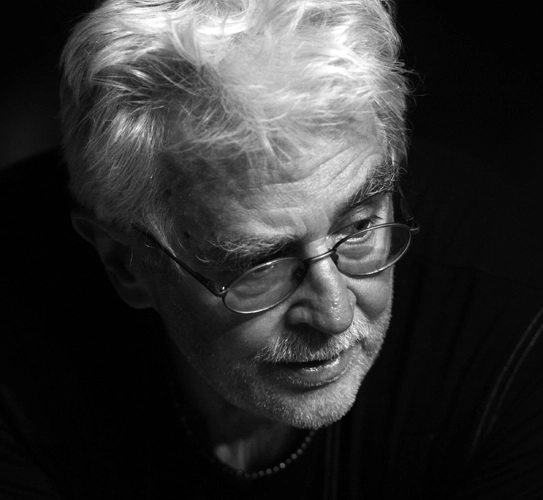Krystian Lupa was born in 1943 in Jastrzębie Zdrój, Poland. After studying at the Academy of Fine Arts in Kraków and the Łodź Film School he entered the National Theatre School in Kraków where he studied directing. His theatrical career began in 1976. After working at the Theatre of Jelenia Góra, he collaborated with Teatr Stary in Kraków, Teatr Dramatyczny in Warsaw and Teatr Polski in Wrocław, while teaching since 1983 at the faculty of directing at The National Theatre College in Kraków. Influenced by Tadeusz Kantor (his "master", along with the filmmaker Andrei Tarkovski) and a great reader of Jung, he developed his conception of theatre as an instrument for exploring and transgressing the boundaries of individuality (set out in a text entitled The Theatre of Revelation). He first staged the great Polish playwrights of the 20th century: Witkiewicz (Les Mignons et les Guenons, 1977), Gombrowicz (Yvonne, Princesse de Bourgogne, 1978, Le Mariage, 1984), Wyspianski (Le Retour d'Ulysse, 1981), and conceived two shows in their entirety: La Chambre transparente (1979) and Le Dîner (1980). In 1985, he created City of Dreams at the Stary Teatr based on Alfred Kubin's novel (The Other Side). In addition to directing dramatic works, Chekhov (The Three Sisters, Festival d'Automne, 1988), Reza (Art, 1997), Schwab (The Presidents, 1999), Loher (Claire's Relationships, 2003), fictional literature, particularly Austrian, became his favourite material. He adapted and directed Musil (The Dreamers, 1988), Dostoyevsky (The Brothers Karamazov, 1990), Rilke (Malta or the Triptych of the Prodigal Son, 1991), Bernhard (Kalkwerk/La Plâtrière, 1992; Emmanuel Kant et Déjeuner chez Wittgenstein, 1996; Auslöschung-Extinction, 2001), Broch (Les Somnambules, 1995, Festival d'Automne à Paris, 1998), Bulgakov (Le Maître et Marguerite, 2002), Nietzsche and E. Schleef (Zarathustra, 2006).
Krystian Lupa is a leading figure on the contemporary European stage and a Polish director, author, set designer and lighting designer. Inspired by the director Tadeusz Kantor and the filmmaker Andrei Tarkovsky, his theatre places the actor's work at the centre of the creative process. In a tension between the figurative and the unreal, the concrete and the mental, it is marked by a troubled realism, as if perceived through the shades of the imaginary and the unconscious.
As a complete theatre maker, he has established himself as a designer of adaptations, a visual artist (he himself designs the sets and lighting for his shows) and a director of actors (known for his long preparatory work with the actors on the construction of the characters). His shows are also marked by a singular work on rhythm, slowed down time in the unfolding of the stage action, often concentrated around moments of crisis.
His work has received numerous awards, including the Europe Prize for Theatre (2009). Following Factory 2, he created Persona Marilyn and Le corps de Simone (two parts of a project based on the figures of Marilyn Monroe and Simone Weil); Salle d'attente, based on Norén's Category 3.1 (2011). By Thomas Bernhard, he adapted Perturbation (2013), Des arbres à abattre (2014) and Place des héros (2015).
At the Odéon:
- Les Somnambules by Hermann Broch, 1998
- The Brothers Karamazov by Dostoyevsky, 2000
- Auslöschung / Extinction based from Thomas Bernhard, 2002
- Mistrz i Malgorzata [The Master and Margarita], by Bulgakov, 2003
- Rodzenstwo: Ritter, Dene, Voss [Lunch at Wittgenstein] by Thomas Bernhard, 2004
- Zaratustra, based from Friedrich Nietzsche's Thus Spoke Zarathustra and Nietzsche. Trilogy by Einar Schleef, 2007
- Wycinka Holzfällen [Trees to cut down], by Thomas Bernhard, 2016
- Proces [The Trial], based from Franz Kafka, 2018
- The Emigrants, based from W. G. Sebald, 2024
